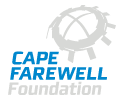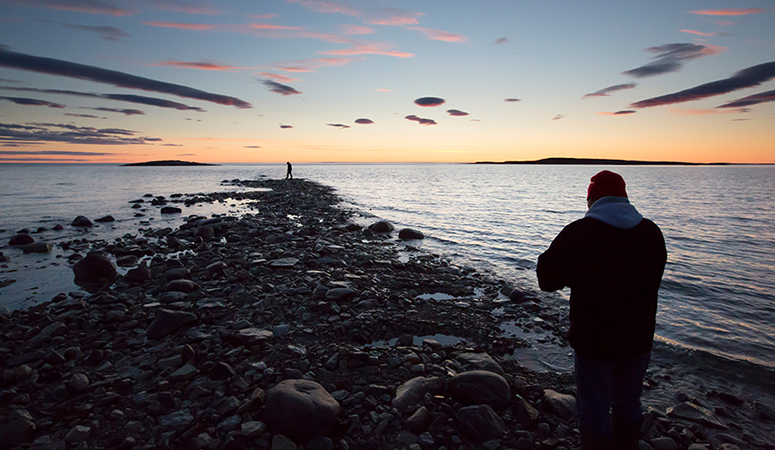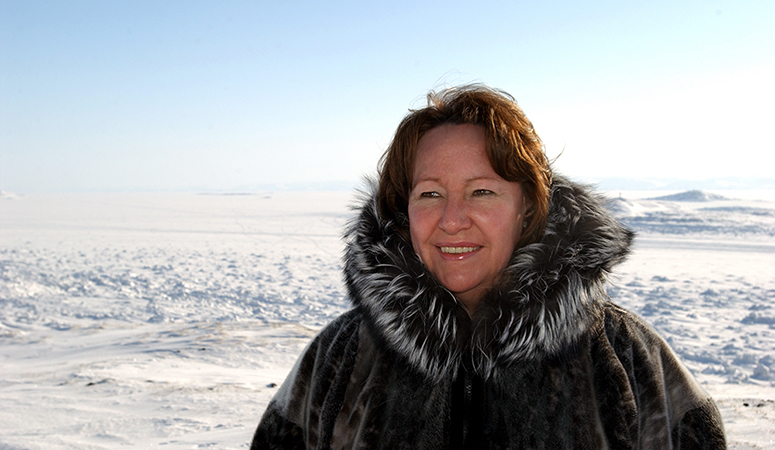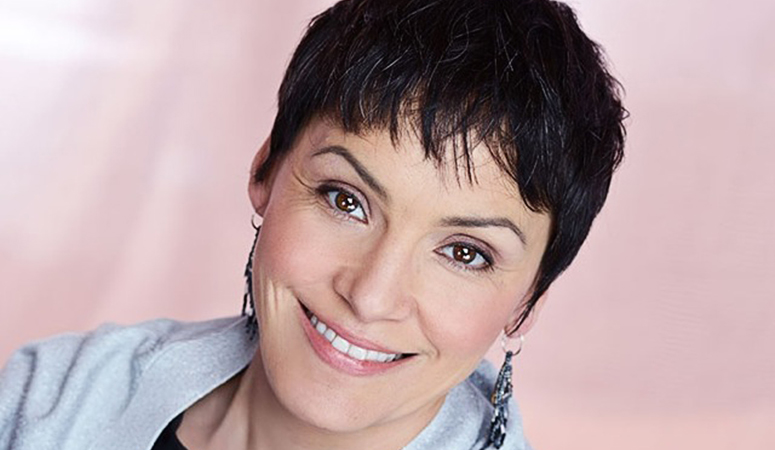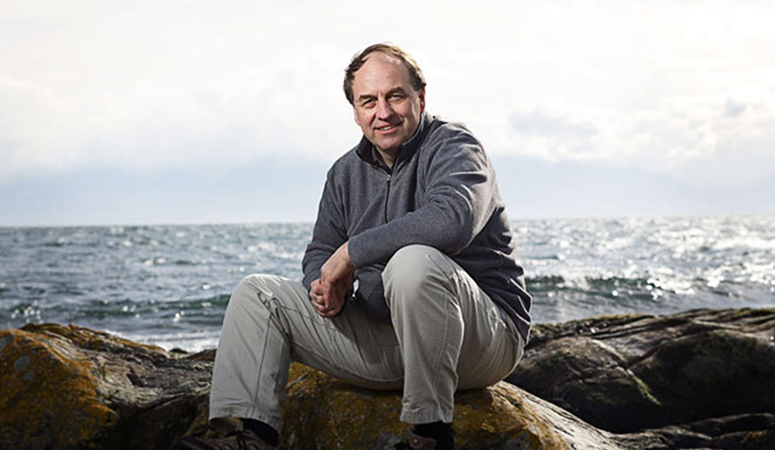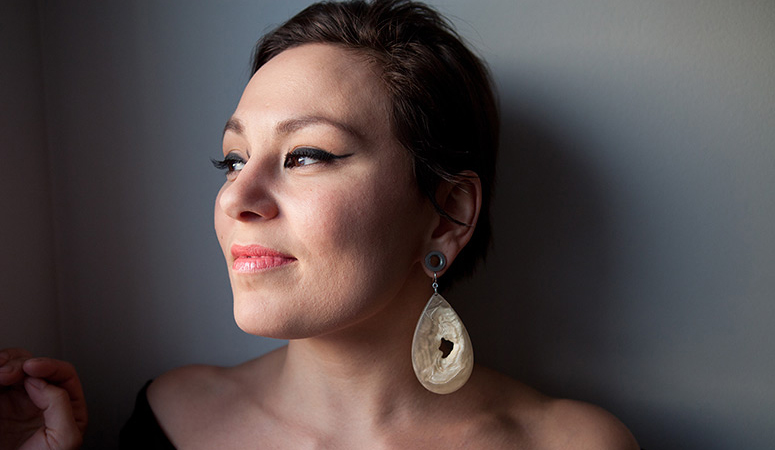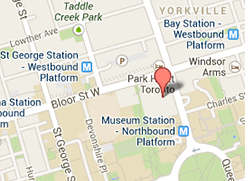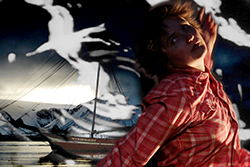Carbon 14 Day of Dialogue
Walter & Duncan Gordon Foundation and Cape Farewell Foundation,
in partnership with ROM Contemporary Culture present:
The Changing Arctic Landscape
January 26, 2014, 1:00PM – 5:15 PM
Royal Ontario Museum, Signy and Cléophée Eaton Theatre (Level 1B)
EVENT VIDEO: Watch a recording of the day’s events here.
Participate in an afternoon of high-level balanced presentations and discussion about the impacts of climate change on Inuit communities with leading experts and stakeholders.
Join acclaimed environmental, cultural and human rights advocate Sheila Watt-Cloutier, leading Canadian climate scientist Dr. Andrew Weaver, National Inuit leader Terry Audla, President of Inuit Tapiriit Kanatami, President and CEO of Baffinland Iron Mines, Ltd. Tom Paddon, and award-winning singer-songwriter Susan Aglukark, among others, as we develop a dialogue about the changing northern landscape. Topics include Climate Change Science and Culture, Arctic Development, and Northern Health and Housing.
See ROM Events page for tickets.
See the Full Schedule for the Day.
Learn more about the Participants
Supported by:
Tanya Tagaq + Post-Normal
Sunday, January 26, 2014, 7:30 PM
Great Hall Black Box Theatre, Toronto
Internationally renowned contemporary Inuit artist Tanya Tagaq and her frequent collaborator Michael Red join creative forces for an evening of innovative, inspired musical performance. The evening will kick-off with a performance by Kitchener-based experimental-glam pop duo Post-Normal (K La Luna and Android M).
See event page for details and tickets.
Presented in partnership with The Theatre Centre.
Full Schedule
The Changing Arctic Landscape
January 26, 2014, 1:00PM – 5:15 PM
Royal Ontario Museum, Signy and Cléophée Eaton Theatre (Level 1B)
(Enter through President’s Choice School Entrance, off Queen’s Park / south end of the building)
11:00 AM – 12:00 PM
Exhibition Tour
Carbon 14: Climate is Culture exhibition curators and select artists will be in the Roloff Beny Gallery, ROM Level 4, to talk about the exhibition.
Welcome and Introductions
Sara French, Director of Programs, Walter and Duncan Gordon Foundation, and Director, Munk-Gordon Arctic Security Program
NOMAD
Susan Aglukark
Susan Aglukark, through songs and stories, will take you on the journey of the Inuit over the last 1000 years and shed some light on the psychological and cultural impact of that rapid change.
2:00 – 2:50 PMA Warming Arctic: Climate Change Science and Culture
Sheila Watt-Cloutier and Dr. Andrew Weaver
Short presentations by Sheila Watt-Cloutier and Dr. Andrew Weaver, followed by conversation moderated by Ian Mauro discussing the scientific and cultural implication of a warming Arctic.
2:50 PM — Coffee / Refreshment Break
3:15 – 4:00 PMHealthy Homes
Panel Discussion with Terry Audla, Chris Furgal, Anthony Andersen, and Wilfrid Greaves (moderator).
For Inuit communities, issues like climate change and development are very important, given that they have a huge impact on regional health and infrastructure. In Canada’s North, delivery of health services is already a challenge, and research indicates health issues are likely to be exacerbated by climate change due to changing environmental conditions and associated impacts on land-based safety, food security, water quality and mental health within communities. Housing infrastructure–or the lack thereof–is key to ensuring the well-being of people and communities.
4:00 PM — “leg stretch”
4:15 – 5:00 PMArctic Development: Open for Business?
Panel Discussion with Tom Paddon, Lloyd Lipsett, Dustin Fredlund, and Fikret Berkes (moderator).
Arguably, the most important and contentious issue currently facing the North is economic development, and its impact on the well-being of indigenous communities and their environment. This panel will explore the balance required to ensure sustainable development in a rapidly changing Arctic. This solution-oriented dialogue will focus on the priorities of northern communities and how they can best be achieved through knowledge sharing, conversation and governance.
5:00 – 5:15 PMClosing Remarks
Thomas Axworthy, President & CEO, Walter and Duncan Gordon Foundation
7:30 PM
Special Evening Musical Performance
Tanya Tagaq + Post-Normal
See event page for Tickets and Information
Participant Information

Susan Aglukark
Susan Aglukark is one of Canada’s most unique and most honored artists. An Inuk from Arviat, Nunavut, Susan has been walking in a tension between two worlds, a defining note in her remarkable career.
She was a rare and exotic presence in the mainstream music world—an Inuk woman, a modern woman, a strong woman with something important to say is sometimes very rare in the entertainment industry—Susan embodied pure, graceful honesty and strength. As her songs climbed the charts, her stories and her candor about the struggles of the Inuit and Aboriginal communities, and her bravery as she opened up about her own anger and struggle won her an audience beyond that of most pop artists.
Aglukark’s musical success is even more interesting when you realize she didn’t start her career until she was 24, with no modern musical orthodoxy to draw on Aglukark was free to respond to the sounds and styles that touched or motivated or inspired her. “When I move around creatively in my music it’s because one particular album has recently affected me.” In essence it has allowed her to build a musical sound that often starts with the strength of the drum, and yet sounds completely contemporary. But perhaps the real appeal of her music is that in an era where the most popular music is often less relevant than style or mood, her lyrics are where she lives. “The songs are driven by the stories. It’s all about the stories.”
As much as she writes and sings about her people, the songs Susan Aglukark creates have something in them that speaks to all of us, whether it’s the longing of a woman growing old for the traditional life that she was taken away from, (“Bridge of Dreams”) to an gentle anthem for peace and tolerance, (“O Siem”—joy in community), Aglukark’s artistic vision is ultimately a universal one.
Artist Website: www.susanaglukark.com
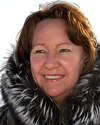
Sheila Watt-Cloutier
Nobel Peace Prize nominee Sheila Watt-Cloutier is in the business of transforming public opinion into public policy. Experienced in working with global decision makers for over a decade, Watt-Cloutier offers a new model for 21st century leadership. She speaks with passion and urgency on the issues of today—the environment, the economy, foreign policy, global health, and sustainability—not as separate concerns, but as a deeply interconnected whole. At a time when people are seeking solutions, direction, and a sense of hope, this global leader provides a big picture of where we are and where we’re headed.
In 2007, Watt-Cloutier was nominated for the Nobel Peace Prize for her advocacy work in showing the impact of global climate change on human rights—especially in the Arctic, where it is felt more immediately, and more dramatically, than anywhere else in the world. Watt-Cloutier is also an Officer of the Order of Canada. She is also the recipient of the Aboriginal Achievement Award, the UN Champion of the Earth Award, and the Norwegian Sophie Prize.
From 1995- 2002, she was elected the Canadian President of the Inuit Circumpolar Council (ICC). She was later elected in 2002 to become the International Chair of the ICC, representing the 155,000 Inuit from Canada, Greenland, Alaska and Russia; she held this post until 2006.
Her upcoming book, Right To Be Cold, will be published in 2014.

Andrew Weaver
Dr. Andrew Weaver is a Lansdowne Professor in the School of Earth and Ocean Sciences, University of Victoria. He has authored or coauthored over 200 peer-reviewed papers in climate, meteorology, oceanography, earth science, policy, education and anthropology journals. He was a Lead Author in the United Nations Intergovernmental Panel on Climate Change 2nd, 3rd, 4th and 5th scientific assessments. He was the Chief Editor of the Journal of Climate from 2005-2009.
Andrew is a Fellow of the Royal Society of Canada, Canadian Meteorological and Oceanographic Society, the American Meteorological Society and the American Association for the Advancement of Science. Over the years he has received a number of awards including the NSERC Steacie Fellowship in 1997, the Killam Research Fellowship and a CIAR Young Explorers award in 2003, the CMOS President’s Prize in 2007, a Guggenheim fellowship in 2008 and the Royal Society of Canada Miroslaw Romanowski Medal and the A.G. Huntsman Award for Excellence in Marine Science in 2011. In 2008 he was appointed to the Order of British Columbia. His book Keeping our Cool: Canada in a Warming World was published by Viking Canada in September 2008. His second book Generation Us: The Challenge of Global Warming was published by Raven books in 2011. In 2013, he was elected as a Green Party of British Columbia Provincial MLA in the riding of Oak Bay-Gordon Head.
Website: www.andrewweavermla.ca
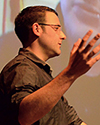
Ian Mauro
Dr. Ian Mauro is an Associate Professor in the Department of Geography at the University of Winnipeg. He holds a BSc in Environmental Science and PhD in Geography, from University of Manitoba, and was a SSHRC Postdoctoral fellow in Ethnoecology at the University of Victoria. He previously held a Canada Research Chair in Human Dimensions of Environmental Change at Mount Allison University.
As both a community-based researcher and filmmaker, Mauro works at the interface between the social and ecological sciences, and is a pioneer of multi-media methodologies, scholarship and education. He uses participatory video to collect, communicate and conserve local and indigenous knowledge, an approach that allows people who live on the land to tell their own stories, in their own language, and within the landscapes where their knowledge has been generated. He was awarded an “Apple Distinguished Educator” award for his approach in 2011.
His films – focused on genetically modified crops, sustainable agriculture and climate change – have been translated into numerous languages and screened globally at academic conferences, film festivals and venues such as the United Nations, Smithsonian Institution, National Geographic and the Royal Ontario Museum. He co-directed the influential Inuktitut language documentary Qapirangajuq: Inuit Knowledge and Climate Change with acclaimed Inuk filmmaker Zacharias Kunuk and they continue to collaborate on a project focused on industrial development in the Canadian Arctic. Mauro’s most recent research documentary, Climate Change in Atlantic Canada, explores the impacts of extreme weather on coastal communities and local-level approaches to mitigation and adaptation. The film was toured across the region with David Suzuki, in partnership with various environmental groups.Given Mauro’s diverse background – dealing with climate science, food security, energy issues, environmental management, community engagement and indigenous knowledge – he is often asked to consult with industry, government and non-governmental organizations and has served on various expert panels. His ongoing research in the Arctic, Atlantic and Prairie regions of Canada endeavours to help us better listen to the language of the land, and offer the world strategies for healthy human interaction with the biosphere.
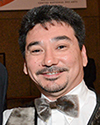
Terry Audla
Terry Audla is the President of Inuit Tapiriit Kanatami (ITK), the national organization representing 55,000 Inuit across Nunavut, Nunavik (Northern Quebec), Nunatsiavut (Northern Labrador) and the Inuvialuit settlement region of the Northwest Territories.
He was born in Frobisher Bay (now Iqaluit), and raised in Resolute Bay, the son of High Arctic Exiles relocated from Inukjuak, Quebec, in the early 1950s.
Mr. Audla has dedicated his career to the implementation of Inuit land claims agreements and the growth of economic opportunities for Inuit, first with the Qikiqtani Inuit Association (QIA), the organization representing 13 communities on Baffin Island an in Nunavut’s High Arctic, and later with the territorial land claims body Nunavut Tunngavik Incorporated (NTI).
In 2011, he was named executive director of NTI, the organization formed to administer the terms of the Nunavut Land Claims Agreement (NLCA) and ensure that all parties to the agreement fulfill their obligations. There, he finalized a resource revenue policy and deposited the first royalty payment, $2.2 million, into that policy’s Trust.
As lands manager, and later, executive director of QIA over a period of 10 years, he oversaw the management of Inuit-owned lands and helped develop a common Inuktitut terminology for lands management. He also launched a court injunction to stop seismic testing in Lancaster Sound, the eastern segment of the Northwest Passage.
In 1998, Mr. Audla was seconded to the Government of the Northwest Territories Office of the Interim Commissioner, where he aided in the transition to the newly created Government of Nunavut and managed the implementation of territorial obligations under the NLCA. He also participated in an independent five year review of the NLCA, and negotiated the Nunavummi Nanngminigaqtunit Ikajuuti (NNI) Policy, which helps Inuit firms obtain government contracts in the territory.
Mr. Audla has also worked as a police officer in the Nunavik communities of Kuujjuaraapik and Akulivik. He is a graduate of the Environmental Technology Program at Nunavut Arctic College and has studied at the Banff School of Advanced Management.
He was elected to a three-year term as President of ITK in June 2012.
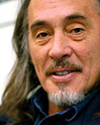
Anthony (Tony) Andersen
Tony Andersen, AngajukKâk for Nain, was born in Makkovik, Labrador and completed his first years of schooling there. He went on to complete high school at the residential school in North West River. He calls the community of Nain home now, where he has been living for the past 18 years.
Mr. Andersen worked for the Department of Social Services in Nain for many years, before taking on the position of manager for Torngat Housing Corporation. In 1992 he was elected as vice president of the Labrador Inuit Association (LIA), before working for eight years with the Voisey’s Bay Nickel Company as an advisor on Aboriginal issues. Mr. Andersen found his way back to politics when he was again elected as vice president of LIA for the second time in 2001. He served for one year as the acting president of LIA. On Dec. 1, 2005, he became First Minister of the Transitional Nunatsiavut Government. During elections for the first official Nunatsiavut Government in October 2006, Mr. Andersen was again elected as an Ordinary Member for the community of Nain, and was selected by the members of the Nunatsiavut Assembly to serve as the First Minister. In the spring of 2010, Mr. Andersen made an unsuccessful bid for reelection as Ordinary Member for Nain. In September 2010, he was elected as the AngajukKâk for Nain. Mr. Andersen’s connection to his community, the land and his culture is clearly apparent in his everyday life. Always ready to listen and bring forward issues from his constituency and stand up for all members of the Assembly, Mr. Andersen is a very approachable and charismatic person.
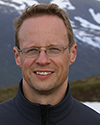
Chris Furgal
Chris Furgal is an Associate Professor in the Indigenous Environmental Studies Program at Trent University in Peterborough, Ontario. He is cross-appointed to the Departments of Indigenous Studies and Environmental Resource Studies and Sciences and is Director of the Health, Environment and Indigenous Communities Research Group and co-Director of the Nasivvik Centre for Inuit health and changing environments.
His current research focuses on environmental health risk assessment, management and communication with Indigenous communities throughout the Arctic. He is particularly interested in ways of bringing together different forms of knowledge and understanding in his research to address important environmental health issues facing Indigenous communities today. He has previously been a lead author on the Intergovernmental Panel on Climate Change Fourth Assessment, the Arctic Climate Impacts Assessment and the 2007 Canadian assessments on Climate Change in the North published by Natural Resources Canada and Health Canada.
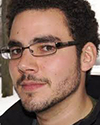
Wilfrid Greaves
Wilfrid Greaves is a PhD candidate in the Department of Political Science and the Munk School of Global Affairs at the University of Toronto. His doctoral research examines changing understandings of security in the Canadian and circumpolar Arctic regions. An Ontario Graduate Scholar, SSHRC Doctoral Scholar and DFAIT Graduate Student Fellow, he is author of several peer-reviewed articles, book chapters, and working papers. He has taught undergraduate courses in International Relations, security studies, and Canadian foreign policy at Ryerson University and the University of Toronto. A graduate of the University of Calgary and Bishop’s University, his research interests include security theory, human and environmental security studies, natural resource development and climate change, Canadian foreign policy, and complex peacebuilding operations.
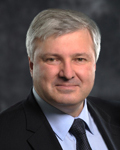
Tom Paddon
Tom Paddon is the President and CEO of Baffinland Iron Mines, Ltd. The company is currently developing Canada’s newest and most northerly iron ore mine, the Mary River Project, located on Baffin Island in the Qikiqtani region of Nunavut in Canada’s High Arctic.
Mr. Paddon’s previous experience of developing and operating the Voisey’s Bay Project, also in Canada’s north, involved successfully integrating the rights of indigenous peoples with unparalleled environmental performance standards and the developer’s commercial interests. The Voisey’s Bay Project set new benchmarks for achieving social license and commercial success in remote mining operations.
Construction is now underway at Mary River.

Lloyd Lipsett
Lloyd Lipsett is an international human rights lawyer with over 15 years of experience working with companies, governments, civil society organizations and indigenous peoples. He has developed a niche in the field of human rights impact assessment with a focus on extractive industry projects and free trade agreements. He has special expertise on indigenous peoples rights, economic, social and cultural rights and stakeholder engagement. Lloyd began his career as a corporate litigator at McMillan Binch in Toronto. His education is from Queen’s University in philosophy and politics, and then from McGill University in law. He is a member of the Law Society of Upper Canada.
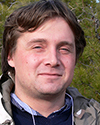
Dustin Fredlund
The significance that economic development and the environment play in the future for the North has been the catalyst that has seen Dustin Fredlund employed as a conservation officer, wildlife manager and currently as a director of economic development for the Nunavut Government. He has been fortunate to merge his personal interests in sustainable development with his professional career. Dustin works with various levels of government and non-governmental organizations dedicated to promoting economic viability while recognizing the importance of cultural and environmental sustainability
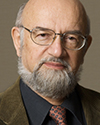
Fikret Berkes
Dr. Fikret Berkes is Distinguished Professor, University of Manitoba, and Canada Research Chair. His Arctic contributions include the book, Breaking Ice (U Calgary Press, 2005), the “Inuit Observations of Climate Change” study, and co-authorship in Arctic Climate Impact Assessment report. He has done fieldwork in the Western Arctic and James/Hudson bays.
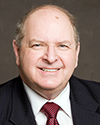
Thomas S. Axworthy
Thomas S. Axworthy is President and CEO of the Walter and Duncan Gordon Foundation. Dr. Axworthy has had a distinguished career in government, academia, and philanthropy. Early in his career, he served as Senior Policy Advisor and Principal Secretary to Prime Minister Pierre Trudeau, before leaving politics to teach. In 1984, Dr. Axworthy went to Harvard University as a Fellow of the Institute of Politics at the Kennedy School of Government. He was subsequently appointed visiting Mackenzie King Chair of Canadian Studies. In 1999, Dr. Axworthy helped to create the Historica Foundation to improve teaching and learning of Canadian history, becoming its Executive Director until 2005. To recognize his achievements in heritage education (he initiated the Heritage Minutes), civics, and citizenship, Dr. Axworthy was invested as an Officer of the Order of Canada (2002). In 2003, he became Chair of the Centre for the Study of Democracy, School of Policy Studies, Queen’s University, pursuing the themes of expanded human rights and responsibilities, democratic reform, Canadian-American relations, and modern liberalism that characterized his research, teaching and advocacy career. He is a distinguished senior fellow at the Munk School of Global Affairs and a senior fellow at Massey College. Dr. Axworthy was recently appointed Secretary General of the InterAction Council of Former Heads of State and Government.
Dr. Axworthy has edited several publications, with the most recent being Bridging the Divide – papers for the Interaction Council (June 2008). He was awarded an honorary LLD from Wilfrid Laurier University (2003) and the Public Affairs Association Award of Distinction on November 26th, 2008 by the Public Affairs Association of Canada.
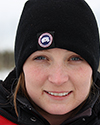
Sara French
Sara French is Director of Programs, Walter and Duncan Gordon Foundation, and Director, Munk-Gordon Arctic Security Program. Over the past three years the Arctic Security Program’s conferences have grown into one of the premiere venues for the discussion of circumpolar issues, covering topics such as Arctic peoples and security, the Arctic Council, public opinion in and about the North, and emergency management.
Sara has a Master of Arts degree at Queen’s University with a focus on Canadian foreign policy. She also holds a Bachelor of Arts degree from Queen’s and spent her first year of studies at the International Study Centre at Hertsmonceux Castle in the United Kingdom. Sara has worked as a Research Intern at the Department of Business, Enterprise, and Regulatory Reform in the United Kingdom, while participating in the Hansard Research Scholar’s Programme at the London School of Economics. She has also interned at the Mission of Canada to the European Union in Brussels, Belgium and has worked in the British Virgin Islands.
Multimedia Extras
Watch video of the day’s events:
The Changing Arctic Landscape
Royal Ontario Museum, January 26, 2014
Welcome and Introductions
Dave Ireland, Managing Director, ROM Biodiversity
Sara French, Director of Programs, Walter and Duncan Gordon Foundation, and Director, Munk-Gordon Arctic Security Program.
A Warming Arctic: Climate Change Science and Culture
Sheila Watt-Cloutier and Dr. Andrew Weaver with moderator Ian Mauro
Short presentations by Sheila Watt-Cloutier and Dr. Andrew Weaver, followed by conversation moderated by Ian Mauro discussing the scientific and cultural implication of a warming Arctic.
Healthy Homes
Terry Audla, Chris Furgal, and Anthony Andersen with moderator Wilfrid Greaves
For Inuit communities, issues like climate change and development are very important, given that they have a huge impact on regional health and infrastructure. In Canada’s North, delivery of health services is already a challenge, and research indicates health issues are likely to be exacerbated by climate change due to changing environmental conditions and associated impacts on land-based safety, food security, water quality and mental health within communities. Housing infrastructure–or the lack thereof–is key to ensuring the wellbeing of people and communities.
Arctic Development: Open for Business?
Tom Paddon, Dustin Fredlund, and Lloyd Lipsett with moderator Fikret Berkes
Arguably the most important and contentious issue currently facing the North is economic development, and its impact on the well-being of indigenous communities and their environment. This panel will explore the balance required to ensure sustainable development in a rapidly changing Arctic. This solution-oriented dialogue will focus on the priorities of northern communities and how they can best be achieved through knowledge sharing, conversation and governance.
Closing Remarks
Thomas Axworthy, President & CEO, Walter and Duncan Gordon Foundation
Presented by the Walter & Duncan Gordon Foundation and Cape Farewell Foundation in partnership with ROM Contemporary Culture as part of the Carbon 14: Climate is Culture exhibition + festival, a four-month long cultural engagement—through music, performing arts, talks, and a major exhibition at the ROM with the challenge of climate change.

